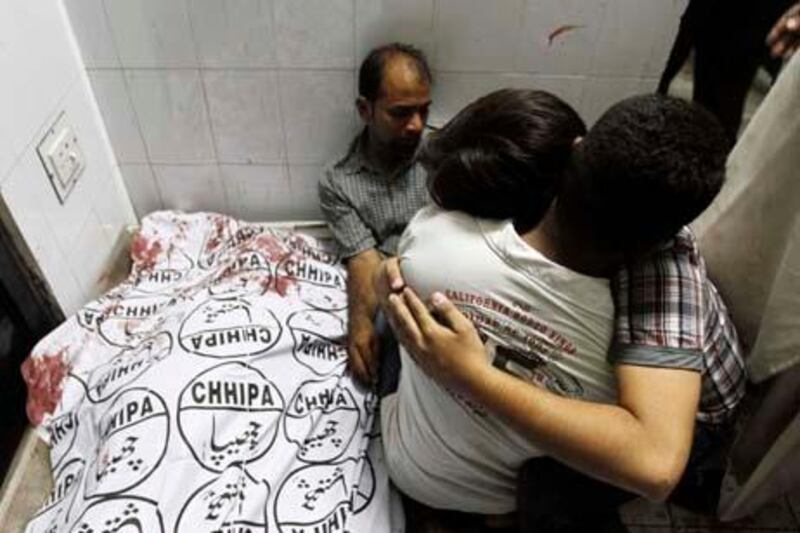Businesses and schools have closed today in Pakistan’s financial hub Karachi, as the death toll from four days of violence continues to mount.
An assault by gunmen on the city’s Sher Shah Market yesterday killed 13 people, but the spiralling mayhem has reportedly killed 35 people in the past 24 hours, taking the toll past 80 in four days.
Police have already detained 85 suspects.
Karachi, a sprawling port city of more than 16 million residents, has reeled from this latest round of violence. Many killings in the city have been linked to gangs allegedly controlled by political parties, with the violence coinciding with Sunday's election to replace a provincial lawmaker killed in August.
Because of its status as the country's main economic hub, keeping Karachi calm is of prime importance to Pakistani leaders who have already seen criminal activity soar alongside Taliban-led violence.
A major chunk of supplies for US and NATO troops is shipped to the city before travelling overland in Pakistan and into neighboring Afghanistan.
The two parties most linked to violence in Karachi – the Muttahida Quami Movement and the Awami National Party – have their electoral bases in different ethnic groups that make up a large share of the city's population.
The MQM claims to represent the Urdu-speaking descendants of those people who came to Karachi from India soon after the birth of Pakistan in 1947. It is secular and likes to speak out against the so-called Talibanisation of the city, a jab at the Awami National Party, which represents the ethnic Pashtuns from the Taliban heartland in the northwest.
Raza Haider, the member of the provincial assembly who was gunned down in August, was a senior member of the MQM.
Both parties were competing for Haider's vacant seat, but the ANP announced on Saturday evening that it would boycott the election, saying the MQM would rig the vote. The MQM won the seat.
The MQM lawmaker Haider Abbas Rizvi said the party had handed authorities a list of 150 alleged criminals it suspects in the attacks but that nothing had come of it. He not only blamed the ANP, but faulted the Pakistan People's Party, which control's the provincial government.
ANP spokesman Amin Khattak said the MQM was to blame, noting that the killings began shortly after his party said it would boycott the election.
Also today, a police constable was wounded when someone threw a grenade at a checkpoint on the outskirts of Pakistan's main northwestern city, Peshawar, said Liaquat Ali, a senior police official.





